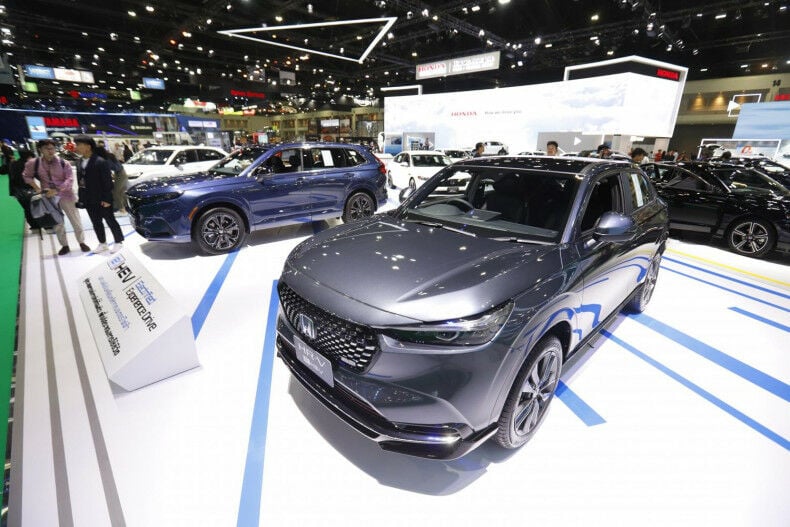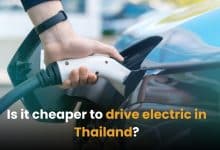Bangkok motor show fuels surge in electric vehicle demand

Demand for electric vehicles (EVs) is anticipated to surge at the Bangkok International Motor Show, with the Federation of Thai Industries (FTI) attributing the boost to the release of new EV models and the launch of promotional sales campaigns.
Automakers are enticing potential customers with competitive pricing and low interest rates, particularly aiming at those planning to purchase new vehicles on an instalment basis, explained Surapong Paisitpatanapong, vice-chairman of the FTI and spokesperson for the federation’s Automotive Industry Club.
As of March 31, the fifth day of the 12-day automotive exhibition that started on March 27, total bookings for internal combustion engine vehicles and EVs reached 19,157 units, according to the event organisers. Motorcycle reservations, meanwhile, stood at 1,723 units.
The event has seen a flurry of competition among EV manufacturers, each vying for attention with unique designs and advanced electric mobility technology, said Surapong.
“The 45th Bangkok International Motor Show is stimulating EV sales, causing the EV market to expand as more people show interest in trying EVs.”
The government’s EV3.5 scheme, approved in December last year, is also contributing to increased sales.
The EV3.5 incentive package aims to accelerate the growth of the EV industry from 2024 to 2027. The package offers subsidies, reduced import duties on fully assembled cars, and a decrease in excise tax. However, participation in the EV3.5 scheme requires manufacturers to produce EVs locally from 2026.
By 2030, the government aims to have battery electric vehicles (BEVs) makeup 30% of total car manufacturing. This goal equates to the production of 725,000 zero-emission cars, 675,000 electric motorcycles, and 34,000 electric buses and trucks.
In the first couple of months of this year, domestic sales of passenger cars in the BEV category skyrocketed by 111% year-on-year to 14,575 units, as per the FTI data. However, in February, new registrations of all types of battery-powered cars witnessed a 15.9% year-on-year decrease to 6,335 units.
This drop was partly ascribed to banks tightening their car loan criteria due to the high household debt rate in the nation, according to Surapong Paisitpatanapong.
He also noted that some potential buyers have delayed their purchases to coincide with the Bangkok International Motor Show, hoping to take advantage of the EV options on display.
Latest Thailand News
Follow The Thaiger on Google News:


























